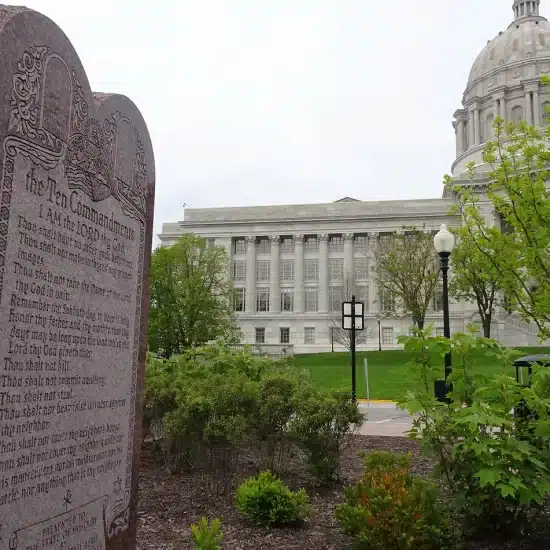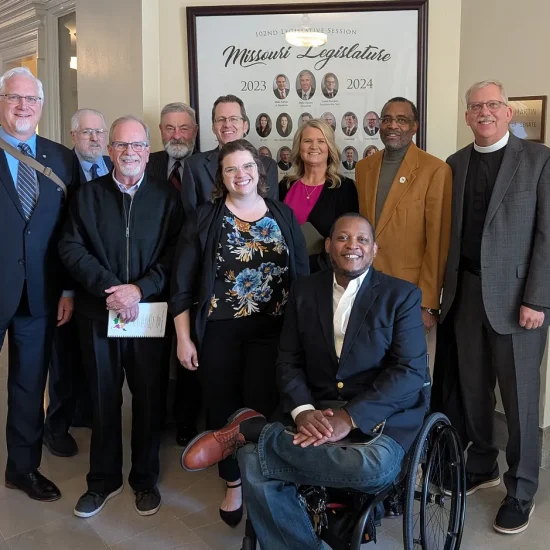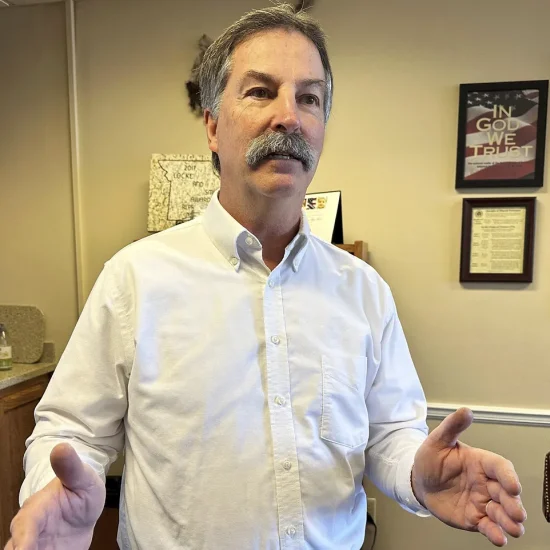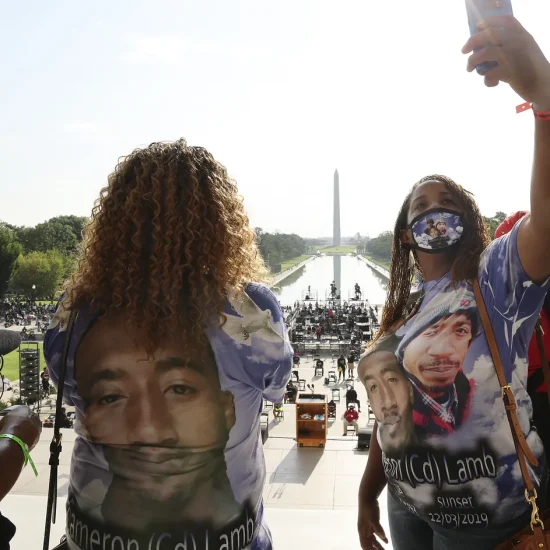By Robert Marus
REPUBLIC, Mo. (ABP) — As battles between conservatives continue to roil the Missouri Baptist Convention, one prominent layman in the state is proposing a miniature re-creation of the infamous Southern Baptist Convention “Peace Committee.”
But the convention’s president — cautioning that he had not gotten a chance yet to look at the proposal — said April 3, “I’d be in favor of everything I could do to promote and bring about peace, but I’m not sure a peace committee is going to be an answer.”
MBC president Gerald Davidson said he had only received a copy of Missouri Baptist layman Kent Cochran’s proposal the night before and hadn’t had time to review it in detail due to travel.
Davidson, the retired pastor of First Baptist Church of Arnold, noted that he was a veteran of conservatives’ successful efforts on both the state and national levels to take control from Southern Baptist moderates. “I go back to the ‘80s, you know; I was involved in the struggles then, and the [SBC] Peace Committee didn’t solve many problems at that time,” he said.
Cochran — a Republic layman who is also a veteran of the SBC and MBC struggles against moderates — sent a news release detailing the proposal to media outlets April 1. Cochran’s release said he mailed the proposal to all members of the MBC executive board, which is scheduled to meet April 14-15. He is not a member of the body.
The proposal asks the board to establish a committee of 14 members representing the two “major sides” in a struggle that, since 2006, has divided the convention into warring factions of conservatives. The committee would “research the perceptions, activities, expectations, history, present and future of Missouri Baptists focusing particularly on the three issues of: theology, methodology, political activity and any related matters that involve Missouri Baptist life,” according to the proposal.
Conservatives in Missouri, led by Missouri Baptist Laymen’s Association founder Roger Moran, cemented their control of the convention’s governing structures in 2001. Many moderate churches in the state withdrew support from the convention, with some joining a new alternative body, the Baptist General Convention of Missouri. Many of those churches were later kicked out of the MBC because of their ties to the new convention as well as a nationwide moderate group, the Cooperative Baptist Fellowship.
But intramural disputes between Missouri conservatives over the convention’s former executive director, Moran’s control of the nominating process and funding for church plants associated with a nondenominational emerging-church network boiled over in 2006. That year, Moran and allies attempted to force a showdown over then-MBC executive director David Clippard. The executive board later fired Clippard.
Moran and his allies accused Clippard and others of negligence in approving a $200,000 loan for a St. Louis church start, called The Journey, that was part of the Acts 29 church-planting network. They particularly criticized The Journey for an outreach activity that involved convening a theological discussion group at a St. Louis-area brewpub. Moran claimed that it — and all churches associated with Acts 29 — were out of step with what most Southern Baptists believe about the acceptability of alcohol use.
The conflict eventually led to a group of prominent conservative pastors who had worked with Moran in his efforts against moderates to organize against their former ally. The group, calling itself “Save Our Convention,” held rallies and backed Davidson and a slate of officers for convention posts at the body’s 2007 annual meeting.
Moran — who ran for first vice president — and the other MBLA-backed candidates all lost to the Save Our Convention candidates by wide margins. It was the first time in eight years that a slate of MBC officers won without Moran’s backing.
In March, Moran’s organization announced it would gear up and try for a comeback at the next MBC annual meeting, scheduled for October in St. Louis. Along with a press release signed by scores of pastors and laypeople — including Cochran — Moran’s group put out a document detailing what it considers the moral and theological excesses of the Acts 29 movement.
David Sheppard, the informal leader of the Save Our Convention group and pastor of First Baptist Church in St. Charles, released a statement decrying Moran’s tactics.
“Roger’s whole approach has always been guilt by association,” Sheppard said. “He has identified about 10 churches in the Missouri Baptist Convention that are questionable on these matters. I am absolutely positive that every one of us could find that many churches in this convention that we have serious concerns about their practices and perhaps their beliefs. If we go after everybody’s list of 10, pretty soon we can narrow the convention down to those 10 that agree with us.
“This is about the legalistic powerbrokering of a few people who want absolute control of this convention,” Sheppard’s statement continued.
Cochran’s proposal is modeled after one that established the SBC Peace Committee in 1985. The committee was charged with finding a resolution to the moderate-conservative war that had been raging in the SBC since 1979. It conducted interviews and presented several reports, including a final one that SBC messengers approved at the convention’s 1987 meeting.
However, many moderates denounced the report, saying its conclusions were inaccurate and biased in favor of the conservatives’ rhetoric. Most eventually left the SBC for other groups, including the CBF and the Alliance of Baptists.
Moran, reached by telephone April 3, said he had only heard about Cochran’s proposal the night before and had not yet seen a copy.
“Generally, Kent talks to me, but he didn’t mention anything to me about it,” he said. Moran declined to discuss his reaction further, citing a policy of only answering questions from the MBC’s and SBC’s in-house news organs. But he directed an Associated Baptist Press reporter to the anti-Acts 29 manifesto on the MBLA website. “The stuff you’re talking about is on the Web site and you can probably draw some logical conclusions about that,” he said.
Kerry Messer, MBLA’s president and a lobbyist from Festus-Crystal City, said April 3 that he had not heard of the proposal or received it as of the evening of April 2. “This is brand-new news to me,” he said.
Davidson said April 3 that he didn’t know if the proposal would even get a hearing at the April 14-15 meeting.
“Well, I don’t even know that we’ll bring it up at the executive board meeting,” he said. “You know, the agenda was already pretty well set. I’ll just seek a little counsel about this.






